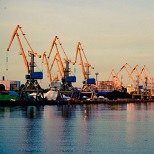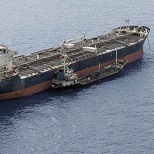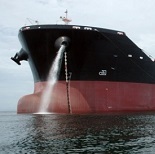Turkish Parliament has ratified the International Convention on the Arrest of Ships 1999
Turkish Parliament has ratified the International Convention on the Arrest of Ships 1999 ("1999 Convention") and the International Convention on Maritime Liens and Mortgages 1993 (“1993 Convention”) on 25 March 2017.
Although the general sprit of the Maritime laws under Turkish Commercial Code (TCC) which came into force on 01.07.2012, is based on the principals of the 1999 and 1993 Conventions, there are some changes under the new legislation which may also affect the general maritime practice.
The changes are as follows:-
1- As per TCC, bank claims under the loan agreements had been added to the wording of the article 1 (p) of the 1999 Convention, as a maritime claim. Therefore, bank claims under the loan agreement are recognized as a Maritime Claim as per Turkish law, differently from the Convention.
2- General Average Contributions are also recognized as a Maritime Lien as per TCC, contrary to the 1993 Convention.
3- According to the TCC, the shipyard owner has a statutory hypothec on the Turkish flagged vessels which can be granted by a court decision and registered to the Turkish Ship Registry. However, if the vessel is foreign flagged, the shipyard owner is entitled to arise a retention right on the vessel that is obviously cannot be registered as the vessel has no registry in Turkey.
Since there is no distinction regarding the statutory hypothec and retention right under the Convention 1993 in which only the retention right of the shipyard owner is recognized, we assume that this controversy may cause some problems to the hypothec rights of shipyard owners’ under the TCC which may end up with the abrogation of the statutory hypothec rights of the shipyard owners.
4- The 1993 Convention stipulates for the announcement of sale to be made “in the State where the auction is conducted”, however the TCC requires an announcement in Turkey for the Turkish flagged vessel to be sold abroad.
As the legislation came into force very recently, the effects of the new system will be observed in time during the legal practice.
In any case, we believe that this legislation will help the adaptation and harmonization of the international maritime rules with Turkish maritime law and practice.
(1).png)
Cargo transportation by sea is one of the most reliable and most expensive methods of goods delivery worldwide. Sea lines are one of...

A NEW INITIATIVE BY THE MINISTRY OF TRANSPORT AND INFRASTRUCTURE The new regulation that entered into force in 28 April 2021 has impo...

Dear colleagues, Here is Quarterly Shipping newsletter broght to you by Interlegal. Let us present the most valuable cases and n...

The issue of the port and berth safety is among those which raise various disputes between the interested parties. As the reasons for declar...

Although travel restrictions are beginning to ease, there are still restrictions in many countries impacting on crew changes. The new clause...
 Ship arrest in Ukraine: new approaches2020.06.18
Ship arrest in Ukraine: new approaches2020.06.18The concept of one shipowner – one vessel The concept of one shipowner – one vessel arose due to shipowners’ reasonable desire to secure...

Task The Client – large bunkering company making business in Black Sea Region – applied to Interlegal for debt recovery for bunker supply...

Dear Interlegal clients, Please be informed that in the third quarter of the 2019 year significant changes of Ukrainian legisla...

A presidential decree has been published in the official gazette on 03.05.2019 marking the date on which the 1999 Convention officially beca...
 LMAA arbitration notice clause2019.02.27
LMAA arbitration notice clause2019.02.27The LMAA has published a clause for use in arbitration agreements to facilitate effective notice by email (including for commencement of arb...




 Odessa, 65014, Ukraine, 1 а, Gretska St
Odessa, 65014, Ukraine, 1 а, Gretska St
